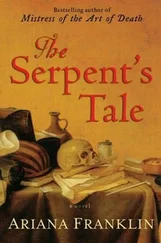The three looked for a withering moment toward the hapless Locusta. No baths?
He wrung his hands. “I’m sorry, I’m sorry, ladies. But to go on farther, or to have stopped earlier…”
The ladies didn’t care about the difficulties of calculating a route.
“The river, though,” Father Adalburt interposed brightly “Is it not an example of God’s bounty that He sent a river to flow past every great town that Man has built?”
The ladies didn’t care about God’s bounty, either. They turned back to the abbot.
“All very commendable, my lord,” Lady Petronilla said, “but our princess is not Saint Benedict. She is a lady of the blood royal.”
“From Aquitaine,” Lady Beatrix pointed out. “And she has traveled through dust all day.” She forbore to mention that, as well as dust, sweat was ruinous to robes that took a phalanx of embroideresses a year to adorn.
“Washing tubs will do,” compromised Mistress Blanche. “My lord, you surely have washing tubs in your laundry?”
The poor man supposed that he had.
“Good,” said Lady Petronilla. “Then please have all of them carried to our room. With lots of hot water.”
Lady Beatrix patted the abbot’s hand kindly: “We provide our own soap and towels.”
In a steam-filled upper room-the abbot’s was the only one large enough-Adelia watched the indistinct forms of maids come and go like ghostly water sprites as she rested her body in warm suds. It had been an unusually long journey of forty miles from their last stop to this.
From the dining room below rose the sound of tipsy men still at table singing a rousing chorus of the immemorial drinking song “Gaudeamus igitur .” She could hear Rowleys voice among them. This was Calvados country; the abbey made it from its own apples and served it in place of ale, despite what the ascetic Saint Benedict would have said.
“Oh, dear,” said Lady Beatrix through the scented vapor. “Sir Nicholas… Isn’t Calvados very alcoholic?”
“Very,” Blanche said. “We can only hope…”
Everybody in the room hoped with her.
From her tub in the middle of the mist, a wet princess changed the subject. “Are you sure God will not condemn us for too much bathing?” (The abbot had taken his revenge during his homily at supper by stressing the sin of vanity among women.)
“Definitely not, my lady,” came Lady Petronilla’s answer, stoutly “Cleanliness is a godly attribute.”
“So Mama says. But in his holiness Saint Thomas never bathed at all once he became Archbishop of Canterbury. They say he was crawling with lice when they undressed his dear body.”
“That’s saints,” said Petronilla firmly “It does not apply to ladies of gentle birth.”
“But when we visited the shrine of the Blessed Sylvia, we were told that the only part of her she ever washed were her fingers.”
“I’m sure she had her reasons, dear.” This was Beatrix. “But the good Lord likes his queens to be clean.” There was a soapy pause. “Along with their ladies-in-waiting.”
Seated in her tub at the end of the row, Adelia grinned. These were acerbic women and no friends to her, but at this moment, with the ache of her limbs being soothed away, she blessed them. She had begun to see that, in their way, they were admirable, clustering protectively round their princess, jealous for her comfort-and their own, of course-entertaining her on the long, long marches with songs-each played a musical instrument-riddles and stories, always exquisitely turned out, their hair perfectly braided under circlets and floating veils, skin like silk on their slim figures, bodices low-cut to show alabaster cleavage.
Men who saw them floundered, later remembering a dream of beauty that would not come again.
It was, she supposed, what Rowley wanted for Allie. But what sort of existence was it? Was veneer enough? Only Petronilla could read, an exercise she confined to books of manners; all three were ignorant of history, except that of their ancestry, and none of them had any conception of life outside court. They talked dreamily of what noble husbands they could expect to be gifted to, as if their marriages were to be a lottery, which, presumably, they would be.
Adelia would have welcomed a peace pact in which to get to know each of them better, but, regarding her as an intruder, they banded together so that their circle formed a fence against her in which their individuality was more or less lost.
Sighing, Adelia called through the scented steam for Boggart to bring her a towel, then winced as a crash indicated that an unguent bottle had been dislodged from the tub’s edge-the girl was trying, bless her, but trying. “You can get into the water now, Boggart.”
“Oh, yes, mistress. I’m getting used to that. And Ward’s got powerful dirty today, I was wondering if I should take un in with me.”
From among the vapors came a concerted chorus of “Please.”
Dried and wrapped in one of Emma’s cloaks, Adelia went out onto the landing, pausing in order to pick up her necklet with its cross from a table where the ladies had left their jewelry so that it should not get tarnished.
She couldn’t find it.
Taking a flambeau from its holder on the wall, she held it over the table so that she could see better and searched again among the pile of glittering rings, brooches, and earrings belonging to the other women.
“Damn them,” she said. “Damn them.” The necklet was her only ornament, worn in remembrance of her childhood nurse, Margaret, who’d given her the original-a simple thing with a plain silver cross that she’d loved, but had put in the coffin of a murdered girl who’d greatly admired it, though, as soon as she could, she’d paid for another to be made exactly like the first.
To make sure, Adelia waited until a dripping Boggart and Ward emerged from the room of baths. “You didn’t pick up my cross for any reason, did you, Boggart?”
“No, mistress.”
“No, I didn’t think you did. Damn them, those bitch… those blasted females have taken it to spite me.”
Boggart considered. “Don’t think as they can have, mistress. It was there when they all went in. I saw it. Ain’t nobody left to come outside since.”
In bed that night, Adelia lay awake for a while wondering who in the abbey was a thief, and why, out of all the jewelry on the table, he-or she-had stolen the one of least monetary value.
Well, with Allie waiting for her, time was of the essence and to make a fuss would only delay the morning’s start while a search was made and people questioned, as well as make her even less popular than she was.
Yawning, she decided she would just have to employ another silversmith when she reached Sicily
But the night was not over…
This time the screams came from the gardens overlooked by the monastery’s guesthouse windows.
This time they were terrible.
This time they were Boggart’s.
There was a resentful mutter of “Sir Nicholas slipped his leash again” from one of the other women as Adelia ran for a cloak. Downstairs, she tugged back the bolts on the door and hurled herself into the garden.
In the middle of the lawn, Sir Nicholas’s substantial and palpitating body was humped over Boggart’s feet. His hands gripped her ankles so that moonlight threw the shadow of the girl’s and man’s figures onto the grass in the shape of a monstrous crochet, except for where a small dog tugged at the seat of the man’s robe.
It would have been the scene of comedy if Boggart’s mouth hadn’t been contorted into a white O of horror and the screams pumping from it weren’t those of a soul in remembered torment.
Adelia joined Ward in tugging at Sir Nicholas’s robe-just as uselessly; the knight was fixed and oblivious. She tried kicking him. “Leave her alone, curse you,” she yelled, “Curse you, you horrid old man, leave her alone.”
Читать дальше












